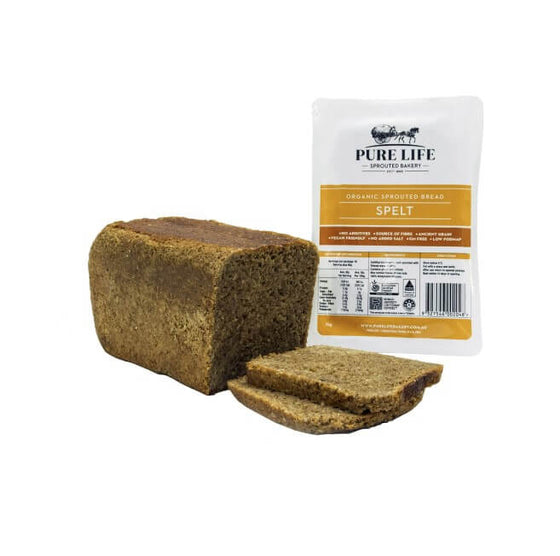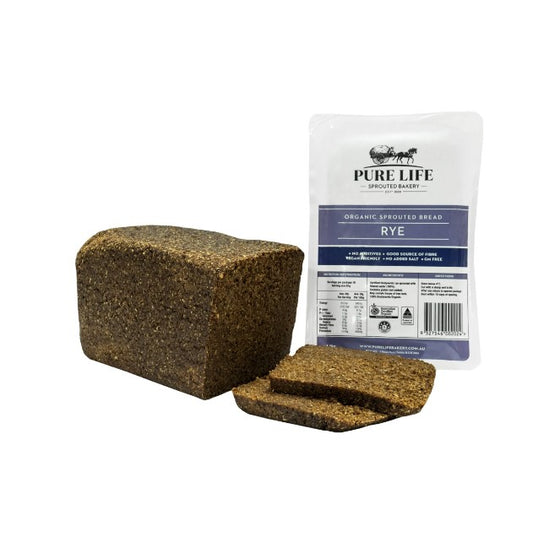The Benefits of Sprouted Grains
When grains germinate, their nutritional content changes and the acidic grain becomes an alkaline forming sprout. Sprouted grains are high in protective antioxidants and encourage the growth of good bacteria in the stomach.
Sprouts, as well as being easily digestible, are a good source of fibre and protein, and are high in many vitamins and minerals. Sprouted grains are significantly higher in protein and vitamins, and their complex starches are converted into natural sugars.
Gluten content is reduced by approximately 50% during the sprouting process. Phytate, which reduces the absorption of minerals, is also markedly reduced. A high proportion of people allergic to a grain are able to consume the sprout or bread made from it. This does not apply to coeliacs. Difficult to digest complex starches are converted to natural sugars by the enzyme amylase making the sprout or bread easier to digest. Fats and oils are converted into more simple fatty acids by the enzyme lipase.
Spouting produces vitamin C while increasing vitamin B and carotene levels. The process changes the grain to a young plant which is more like a vegetable than a grain.
The Benefits of Pure Life Breads
– Our breads do not contain added salt.
– We do not add seed oil to our breads.
– Unlike conventional breads, there is no added yeast.
– Our breads use unrefined grains and do not contain flour.
– Our breads contain no preservatives or additives.
– Whole grains have high antioxidant content and their consumption helps reduces the risk of chronic disease.
– Our breads do not contain animal products and are suitable for vegans.
The History of Sprouted Bread
Sprouted or Essene bread is thought to have first been made by the Essenes from a recipe claimed to have been given to them by God. The Essenes were a Judaic community which lived by the Dead Sea from 2000 BC to 1000 AD.

Sprouted Spelt Bread Organic








